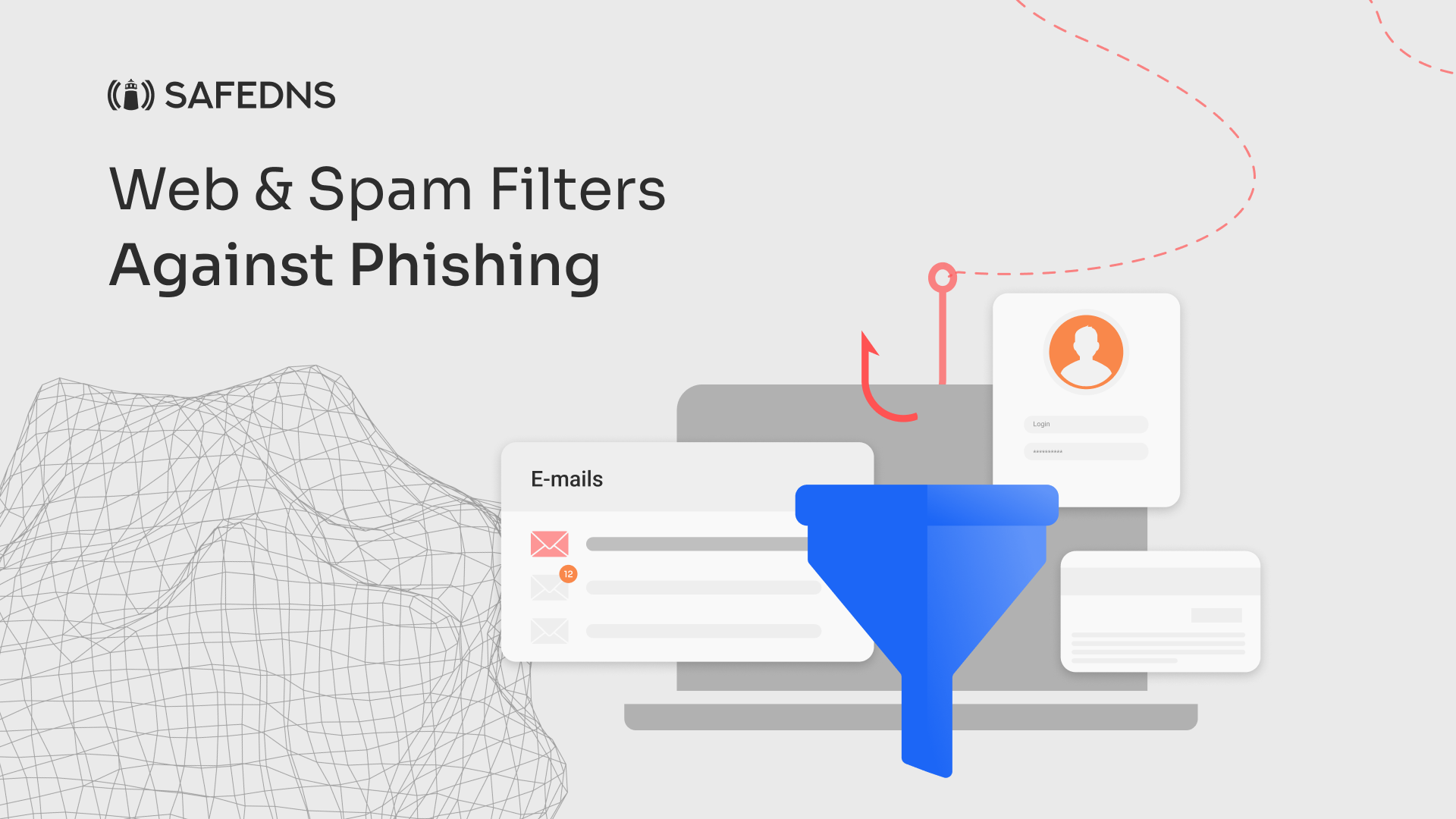
Web & Spam Filters Against Phishing
Recent surge in phishing attacks as reported by Vade in Q3 2023—with a staggering 173% increase—is a wake-up call for businesses and individuals alike. But what does this mean for the average Joe or the small business owner? Are we all just a click away from disaster?
The Cybersecurity Puzzle
It is a sad fact that cybersecurity is no longer a buzzword but a stark reality, especially for the 73% of small businesses globally that recognize it as their most significant risk. According to a recent McAfee and Dell Technologies study, nearly half of these businesses have already been scorched by the fire of cyberattacks, leading to substantial financial losses, eroded customer trust, and hampered operating efficiency. What is more alarming?
The Email Gateway: Friend or Foe?
Email has become the battleground for cybersecurity, with phishing being the weapon of choice for many cybercriminals. But here is the million-dollar question: are spam filters enough to protect us from these threats? Let's break it down.
There are three main types of spam filtering solutions or tools.
- Built-in Email Filters: Offered by giants like Google, these are the first line of defense against spam and phishing attempts.
- Gateway/Cloud-Based Filters: These work by filtering both inbound and outbound messages that look suspicious, adding an extra layer of protection to email service providers’ built-in filters.
- Desktop Spam Filters: Personalized and configured by the user, living right on your desktop.
While these filters do a commendable job of blocking phishing and spam emails, some sneaky phish still manage to slip through the net.
Why do some of the phishing emails bypass filters?
Phishing emails, despite the advancements in email security, spam detection and filter technology, often manage to slip through the cracks due to various ingenious tactics employed by cybercriminals. While email filters utilize several methods to detect suspicious emails, hackers continually evolve their techniques to bypass these defenses.
Here are some common methods used by email filters to detect phishing emails:
- Keyword Analysis: Filters scan emails for specific keywords commonly associated with phishing, such as "you won a prize," to flag them as potential threats.
- Image-to-Text Ratio: Emails containing a high percentage of images and minimal text are flagged, as this tactic is often used to evade text-based filters.
- White Text Detection: Filters look for hidden text, such as white text on a white background, commonly used to hide malicious content from plain sight.
- IP Trust Level: The trustworthiness of the sender's IP address is evaluated, with emails originating from suspicious or low-trust IPs being flagged for further scrutiny.
- From Field Analysis: Emails with randomized or nonsensical sender addresses, like "asdsdf@mail.com," are often considered suspicious and subjected to closer inspection.
However, despite these measures, phishing emails can still bypass filters due to their primary tactic: enticing recipients to click on malicious links within unwanted emails. Unlike other content within the email, the link itself may not always be thoroughly scanned by filters. This loophole is precisely what phishing attackers exploit, knowing that the real danger lies in convincing recipients to interact with the malicious content beyond what the filters can detect.
Consider this scenario: You're working in the accounting department and receive an email seemingly from a familiar colleague, containing a link to an invoice. Since you regularly receive such emails from this colleague, there's no cause for concern. Moreover, the email spam filter may not detect anything inherently suspicious about it. However, unbeknownst to you, earlier that day, your colleague's email account was compromised by a hacker who sent out the phishing email in their name. In this scenario, the email manages to bypass both your vigilance and the email filter, illustrating the cunning tactics employed by cybercriminals.
In essence, while email filters serve as a crucial line of defense against phishing attacks, their effectiveness is not absolute. Hackers constantly adapt and refine their methods to circumvent these filters, making it imperative for individuals to remain vigilant and cautious when interacting with emails, and spam messages even those that seem benign at first glance.
So, what is the solution? Enter Web Filtering
This is where web filtering steps into the spotlight, offering a robust shield against the phishing attempts that dodge email filters. Consider SafeDNS, a solution with over 6 million users around the world, which blocks a whopping 20% more phishing sites than its competitors. But why stop there? The benefits of web filtering extend well beyond just email protection:
- Blocks Newly Generated Phishing Links: SafeDNS does not just block emails and known threats; it quarantines new domains until they are verified, protecting you from the latest scams.
- Provides Secure Communication: It is not just about emails. You can catch a phish through messaging apps, corporate chat platforms, and similar communication tools.
- Enables Safe Surfing: A web filter prevents you from accidentally wandering into malicious territories while browsing the internet.
- Saves Internet Traffic: By filtering out unwanted content, web filtering helps conserve your internet bandwidth, making your online experience smoother and more efficient.
- Enhances Productivity: The installed web filter does not simply restrict access to certain types of resources. It helps employees remain productive, not letting them get distracted by social media or streaming platforms.
The Real-World Impact
Imagine this: you are running a small business, and cybersecurity is not exactly your forte. You have got spam filters up and running, but then comes the curveball—a phishing attack that slips through the cracks of spam protection, leading to compromised customer data, lost passwords, or worse. It is not just a hit on your finances; it is a blow to your reputation. Can you afford to take that risk?
Strengthening the Fortress
So, is it enough to rely solely on spam filters in this age of escalating cyber threats? The answer is a resounding no. With almost half of all ransomware attacks starting with phishing, and the most common catch being through emails, strengthening your defenses with web filtering is not just a good idea—it is essential.
Why Settle for Less?
When we talk about cybersecurity, why settle for a single layer of protection? With the advancements in web filtering technologies, such as those offered by SafeDNS, you are not just protecting your network; you are ensuring peace of mind for yourself, your employees, your partners, and your customers.
In the digital age, the question is not whether you can afford to implement web filtering; it is whether you can afford not to. With cyber threats evolving by the day, can you afford to leave your digital doors unlocked, or will you choose to strengthen your defenses and safeguard your online presence?
To sum up, the rise in phishing attacks is a clarion call for enhanced cybersecurity measures. While email spam filters serve as a necessary barrier against threats, they are not infallible. Web filtering, particularly solutions like SafeDNS that offer advanced protection against new and emerging threats, represents a critical component of a comprehensive cybersecurity strategy. It is not just about blocking malicious emails; it is about creating a safer, more secure digital environment for all users. In the fight against phishing and other cyber threats, web filtering is not just an option; it is a necessity.
Take advantage of the SafeDNS trial period and try all the best features

